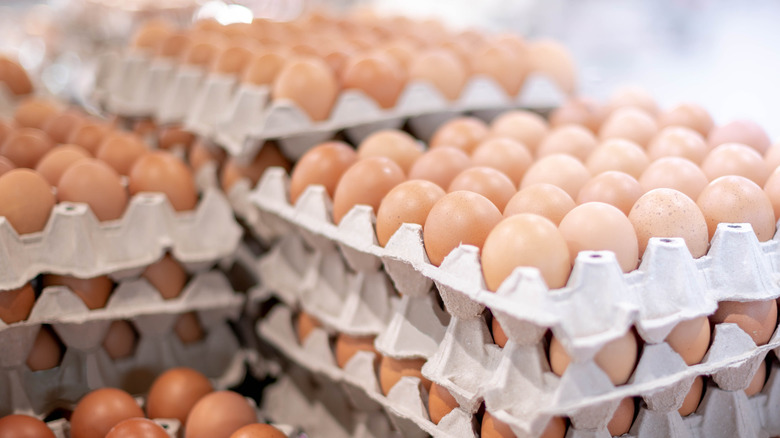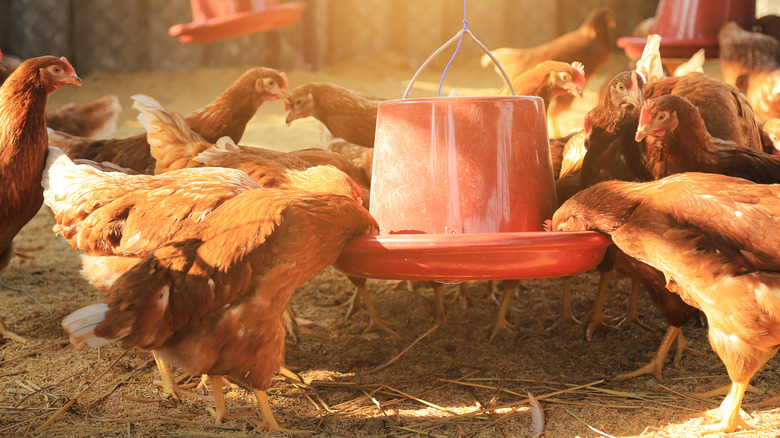Amazon Fresh Just Made A Big Change To Its Egg Selection
Amazon's grocery and food supply division Amazon Fresh announced Wednesday that it would be changing the eggs available through all of its distribution platforms — including Whole Foods. Grocery Dive reports that all eggs sold by Amazon Fresh are now cage-free.
According to the USDA, all cage-free eggs must be laid by hens that have access to food and water at all times and are not bound by cages. All producers that market and sell cage-free eggs are inspected twice a year to ensure that they follow these requirements.
Grocery Dive points out that this new initiative will affect all in-shell and liquid eggs. This will include their own branded Happy Belly products as well as third-party suppliers like Vital Farms and Organic Valley. Supermarket News says this will affect Amazon Fresh, Amazon Go, Whole Foods, Amazon Kitchen, and online sales.
This is just one of many sustainability and animal welfare initiatives detailed by Amazon in a recent blog post. The retail giant has also committed to sourcing Rainforest Alliance-certified cocoa, tea, and coffee, utilizing recycled materials in paper products, and sourcing gestation crate-free pork by 2025. Recent investigations have found that Whole Foods meat products might not be as antibiotic-free as advertised, though.
Why is cage-free important
With all of the buzzwords surrounding egg production, it can sometimes be hard to decipher the labels. There's cage-free, free range, and organic, but what exactly do any of these terms mean, and how much do they benefit egg-laying hens?
According to the Humane Society, most egg production facilities in the United States currently utilize battery cages where hens are kept in cages smaller than a letter-sized piece of paper for their entire lives. Cage-free lets hens out of these cages, but they are still often kept in barns and other closed facilities. HuffPost points out that the best quality eggs and most humanely raised chickens are pasture-raised. Pasture-raised hens spend most of their lives outdoors and are allowed to forage and run freely. HuffPost says that terms like cage-free are forms of greenwashing because while they promise more humane conditions, they are still highly limiting environments for animals to live in.
There is something to be said for pushing the grocery industry in the right direction, though.
"We recognize the significance of a major national retailer improving their baseline standards, which Amazon Fresh has done," said Vital Farms chief sales officer Peter Pappas (via Supermarket News). Kroger grocery stores have also worked to expand the availability of cage-free egg products by partnering with Kipster Farms for its Simple Truth line in a similar initiative, according to Grocery Dive.

